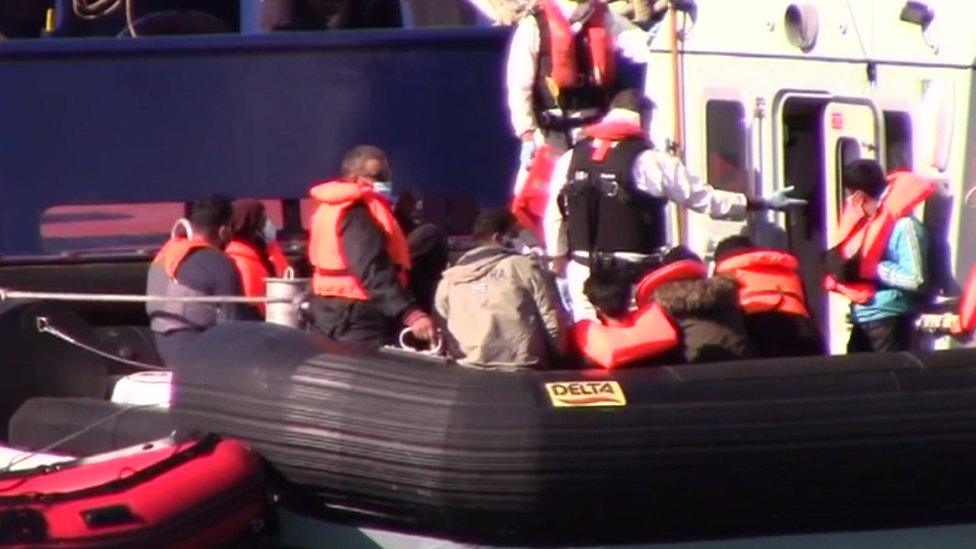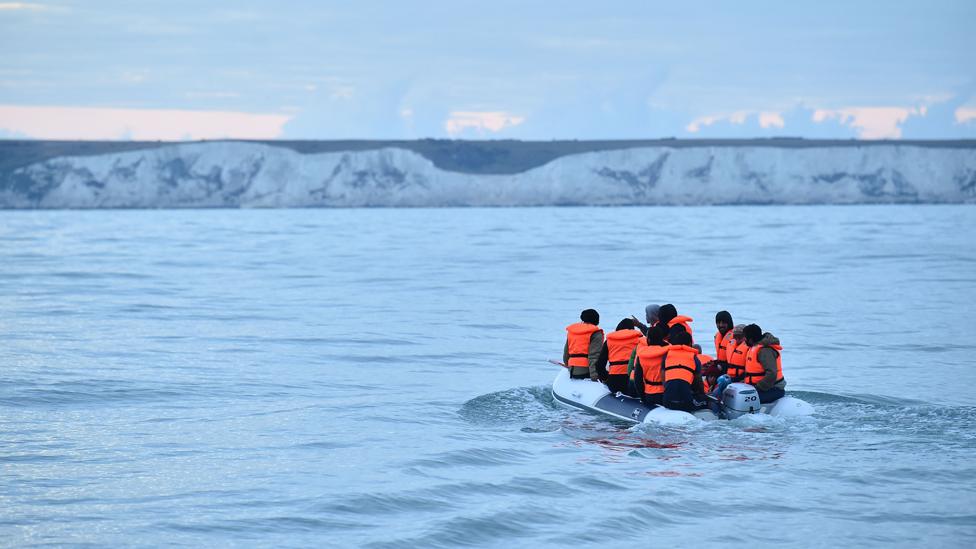Record number of unaccompanied children reach UK
- Published
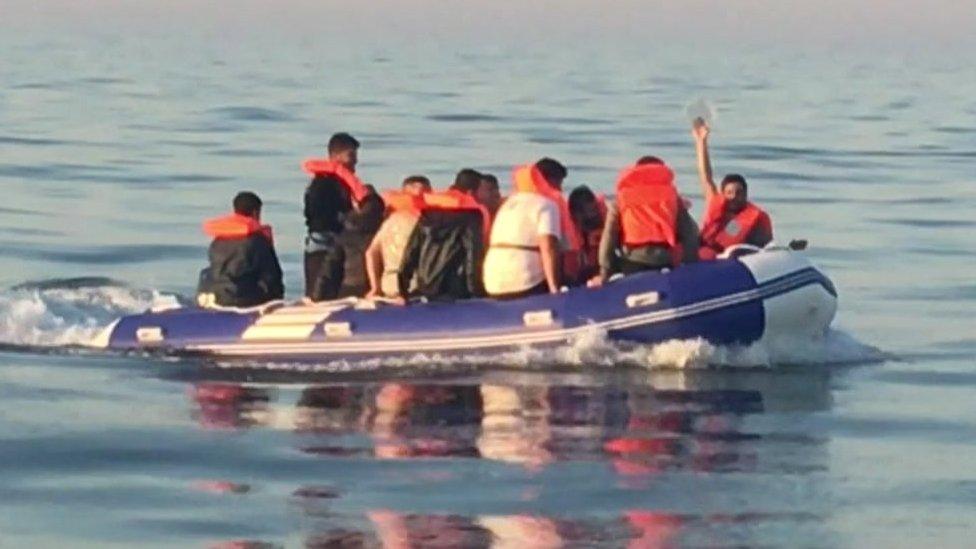
A boat with about 17 people on board was spotted off the coast of Dover
A record number of unaccompanied migrant children have arrived in the UK after crossing the English Channel in small boats.
Kent County Council (KCC), which takes responsibility for lone children arriving on its shores, said it took 23 under-18s into care on Friday alone.
A record 235 people made the crossing in 17 vessels on Thursday.
The government has said planes are due to return migrants to Europe, with a flight taking up to 20 on Wednesday.
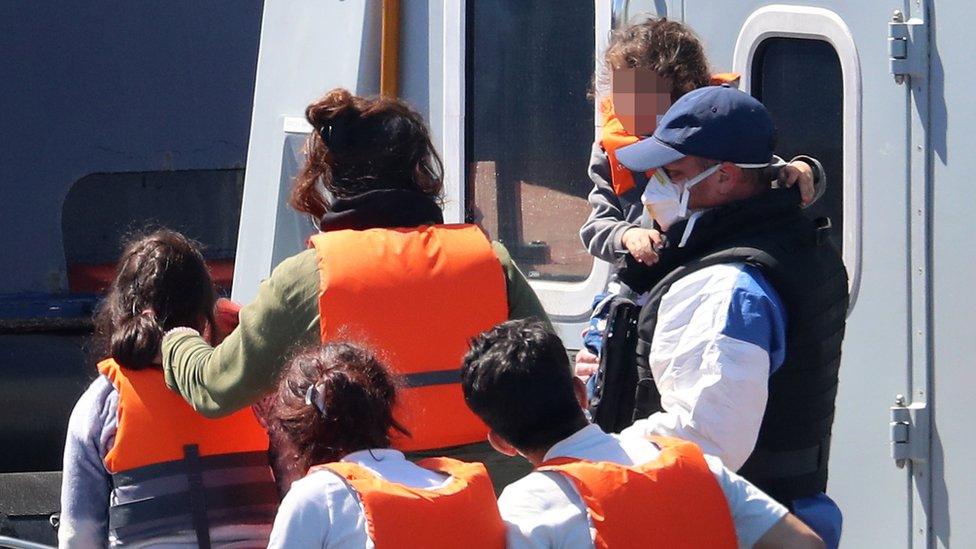
More than 100 migrants are believed to have arrived in the UK on Friday
The crossings continued on Friday, with at least 130 people believed to have arrived on UK shores after being intercepted by authorities.
Pictures showed young children being lifted from boats by Border Force officers at the Port of Dover.
Roger Gough, leader of KCC, said the authority was "under some considerable pressure" due to the arrival of unaccompanied asylum-seeking children.
He said 65 children were taken into its care in May, 85 in June, and 70 in July.
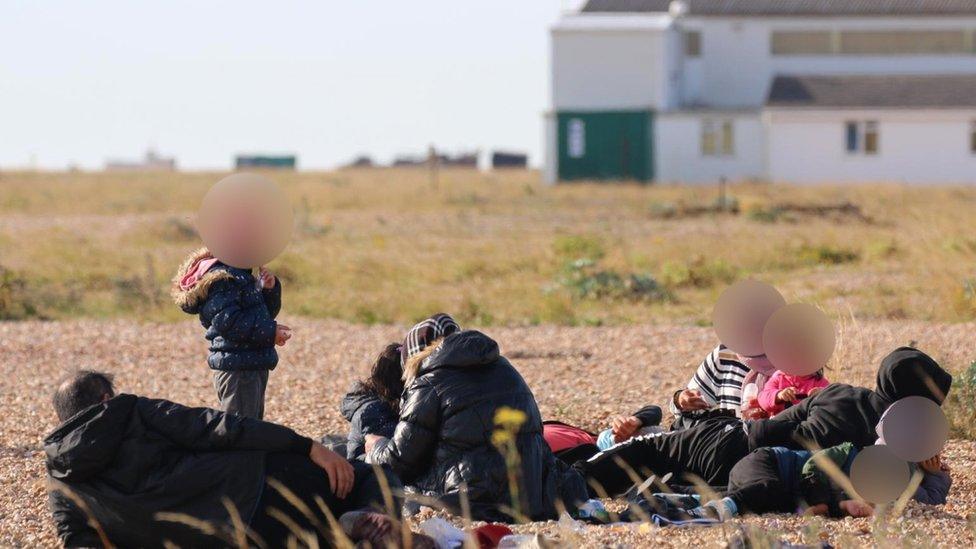
Susan Pilcher said there appeared to be three family groups
The Home Office has refused to confirm the number of children arriving and figures provided by KCC do not include those travelling with their families.
At least 3,950 migrants have reached the UK in small boats this year.
Home Secretary Priti Patel said in a tweet, external that the number of crossings was "shameful" and "unacceptably high", adding that she was "working to make this route unviable" by preventing boats from leaving France as well as intercepting and returning those attempting to make a crossing.
"This is complex to do and we face serious legislative, legal and operational barriers," she added.
About a dozen Conservative MPs have signed a letter to Ms Patel calling for the government to stop crossings and return people who illegally cross the English Channel.
Crawley MP Henry Smith said the government needed to "take a much more robust response with France", external.
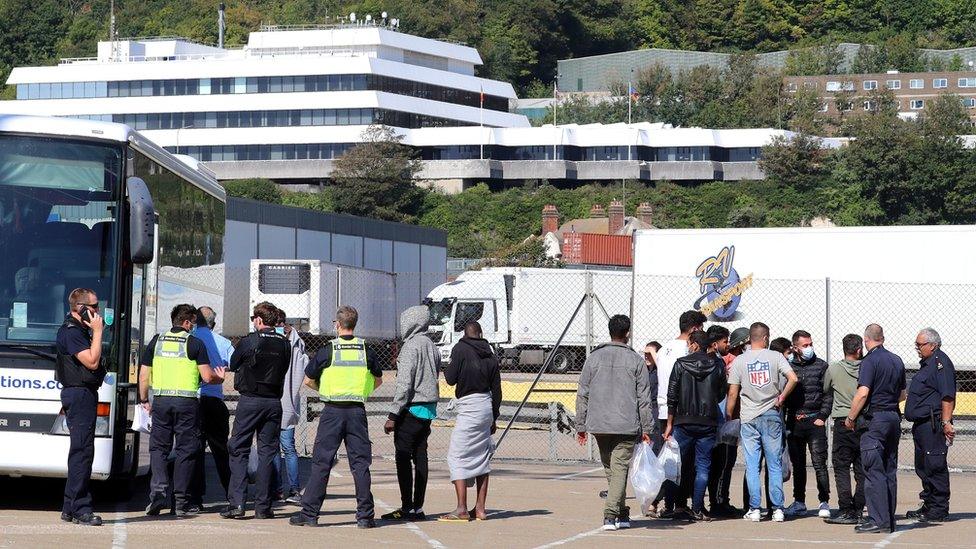
Border Force is believed to have intercepted several boats in the English Channel on Friday
Since January 2019, more than 155 people who entered the UK on small boats have been returned to Europe. At least 5,800 people have arrived in that time.
The number due to be returned on Wednesday's flight is contained in a letter from the Home Office's Immigration Enforcement team to officials at the High Court, setting out their plan for the removal of migrants and arguing why judges should not consider late attempts to stop the flight.
The migrants will be returned to France and Germany after those countries agreed to consider their asylum claims.
The Home Office has blamed current regulations - which determine where an asylum-seeker's claim is heard - for the comparatively low number of people to have been returned to Europe.
It said the Dublin Regulations, which will not apply to the UK after Brexit, were being "abused by both migrants and activist lawyers to frustrate the returns of those who have no right to be here".


Follow BBC South East on Facebook, external, on Twitter, external, and on Instagram, external. Send your story ideas to southeasttoday@bbc.co.uk.
- Published7 August 2020
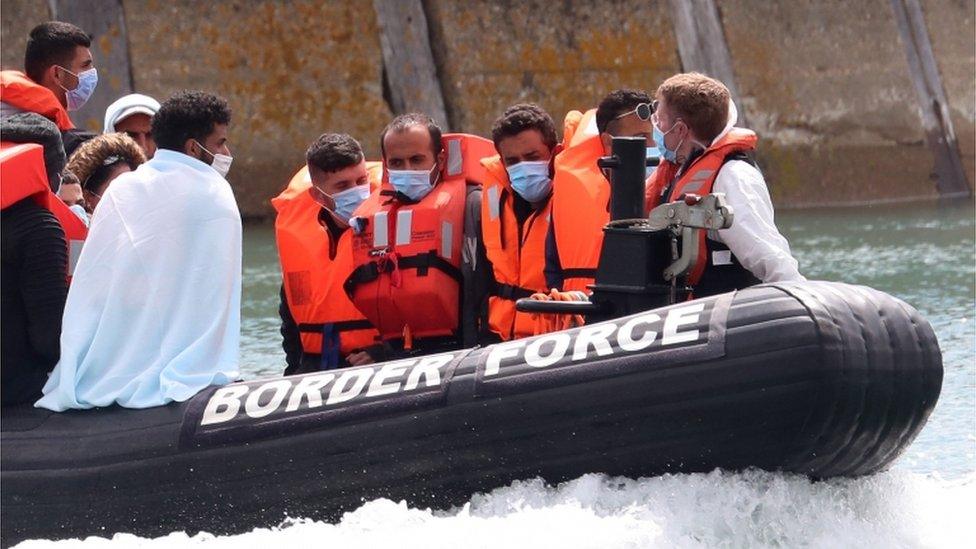
- Published7 August 2020
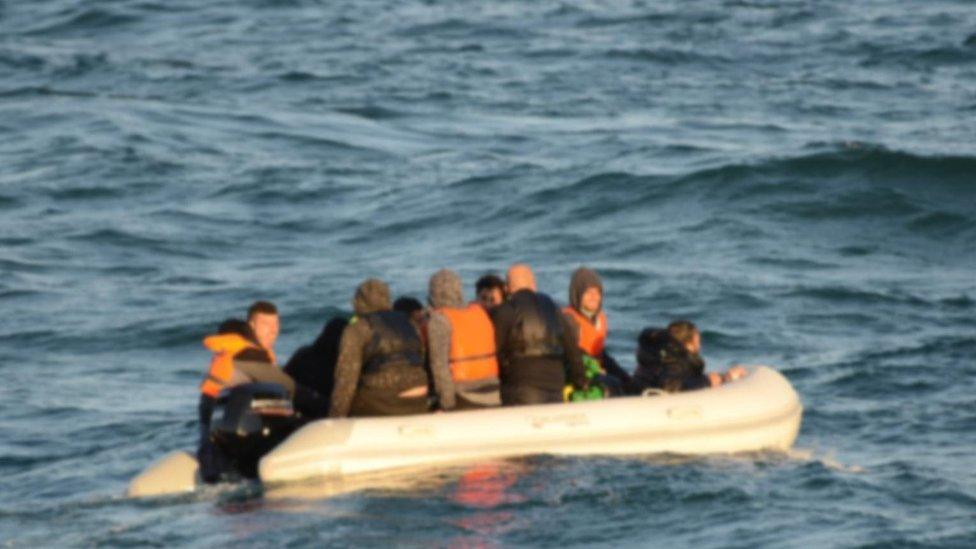
- Published4 August 2020
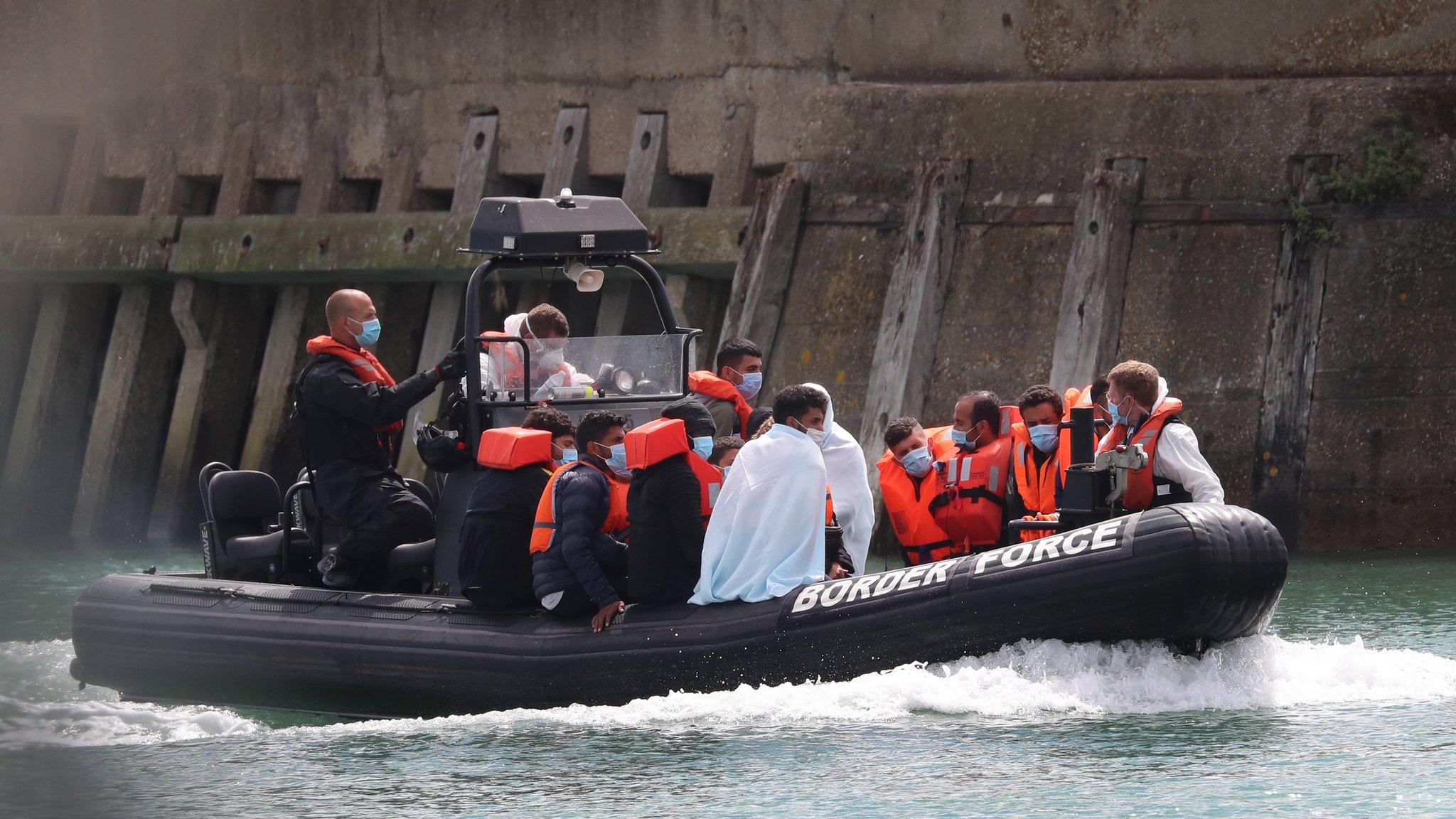
- Published30 July 2020
